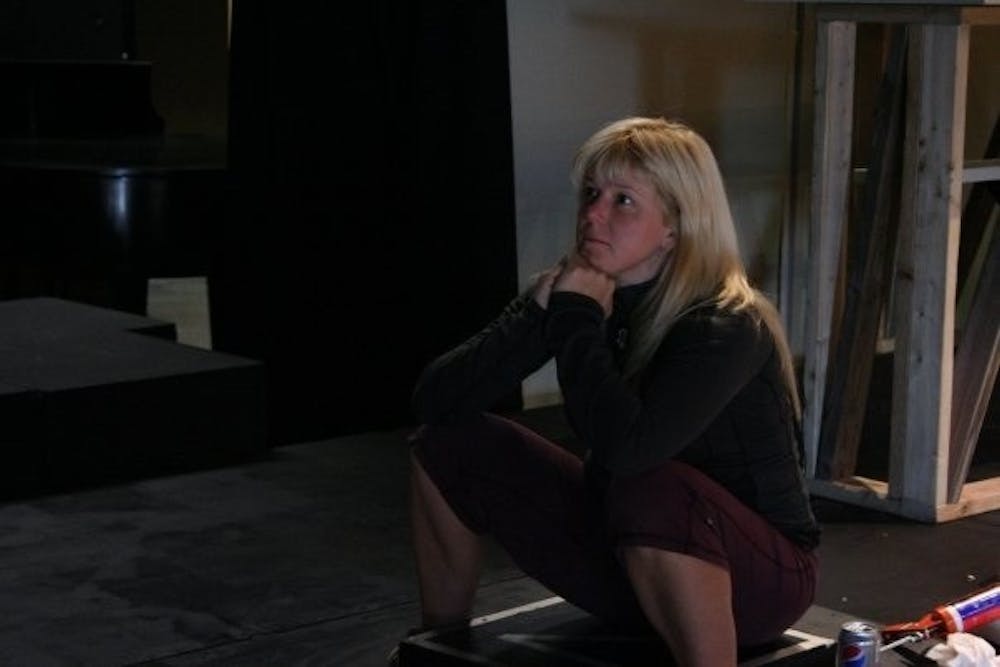Intimacy was an afterthought when Kathleen Golde first pursued theater.
She said actors were expected to approach intimate scenes on their own without any guidance and situations often turned unsafe and uncomfortable for her.
But Golde’s current position as an intimacy director for UB productions like “The Threepenny Opera” ensures actors’ physical and mental safety.
Golde has been an intimacy director for over 16 years, helping performers navigate intimate scenes and dialogue. She first came to UB Theatre & Dance to work on the 2009 production of “Scarcity.” Golde serves as an advocate for actors in potentially uncomfortable situations and ensuresthat nobody crosses lines of consent.She is a neutral party that actors use to share their concerns.
“Years ago, when we went through school and went into the professional world, they would say, ‘Can you just handle that?’” Golde said. “There was no process to make sure safety checks and balances were in place.”
It wasn’t until she witnessed other actors facing unsafe situations that she knew she wanted to become a part of the solution.
“I disregarded the things that caused me to feel unsafe … but when I saw someone put into a situation where they felt unsafe and were willing to put themselves at risk or felt they had to, that was my ‘aha’ moment.”
Golde begins her role in each production by looking at the context of the scene. She meets with the director to learn about their creative vision and then meets with performers to discuss the script. The actors and the creative team must be aware of the scene’s story, and ensure that the intimacy is crucial to the plot before any intimacy choreography begins.
The actors discuss their boundaries with Golde during rehersals. They specify certain areas of the body that the other person is allowed to touch. The actors then establish consent before they start rehearsing any scene.
“The question is about agency. Who has agency, what agency do you possess about your boundaries?” Golde said. “The primary question that all of this hinges on is the difference between permission and consent.”
She explained that someone with authority, like the director, often gives the permission. Consent, however, occurs between the people involved in the scene. A director could give permission for an action to occur in a scene, but if the actors do not consent, it is no longer acceptable.
Golde said, as an intimacy director, she’s part of a growing field. Intimacy directors have been around a while, but with the rise of the #MeToo movement, they’ve started developing criteria for the role.
Golde said that addressing “context, communication, consent, choreography and closure” are all part of this new criteria.
Alexis Miller, a sophomore music theater major, is participating in one of the intimate scenes in “The Threepenny Opera.” She feels Golde, in this position, is a valuable asset to the production.
“[Golde] has always made me feel incredibly safe. … I’m lucky that I have somebody on my side who will be able to guide through everything and somebody who always has my best interest at heart,” Miller said.
Miller says she’s happy to have an intimacy director involved in the rehearsal process.
“Definitely, in this day and age, we need somebody to be looking out for us,” Miller said. “It’s really great that we have amazing people who do, especially an intimacy director who can help us when we need it.”
Julianna is the asst. arts editor and can be reached at julianna.tracey@ubspectrum.com and on Twitter @JTraceySpec.
Julianna Tracey is a freshman music theater and history double major. She’s excited to explore all that the Buffalo arts scene has to offer.





